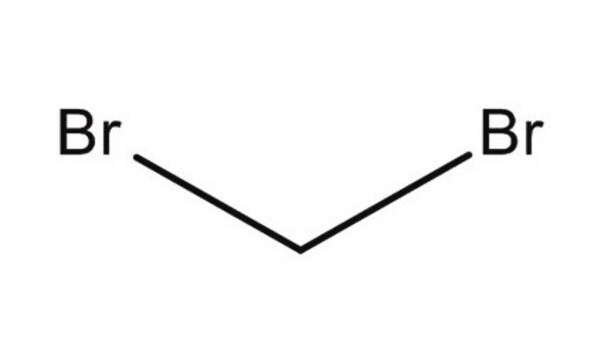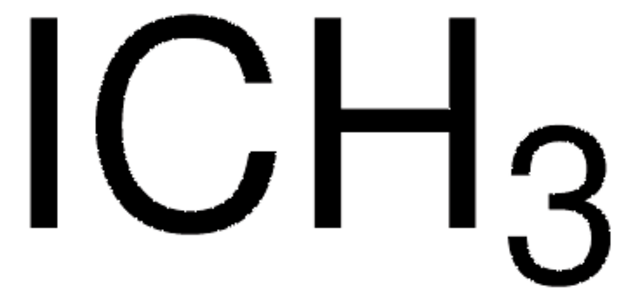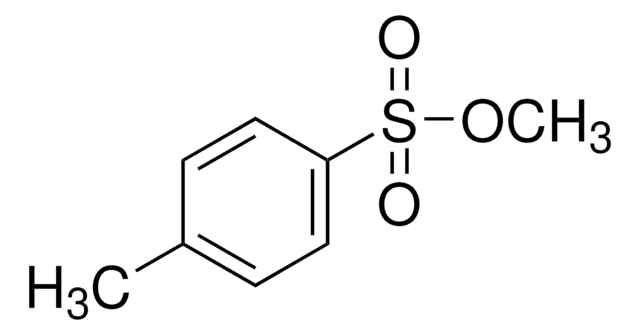47799
Dibromomethane
analytical standard
Synonym(s):
Methylene bromide
About This Item
Recommended Products
grade
analytical standard
Quality Level
vapor density
6.05 (vs air)
vapor pressure
34.9 mmHg ( 20 °C)
CofA
current certificate can be downloaded
packaging
ampule of 1000 mg
technique(s)
HPLC: suitable
gas chromatography (GC): suitable
refractive index
n20/D 1.541 (lit.)
bp
96-98 °C (lit.)
mp
−52 °C (lit.)
density
2.477 g/mL at 25 °C (lit.)
application(s)
environmental
format
neat
storage temp.
2-30°C
SMILES string
BrCBr
InChI
1S/CH2Br2/c2-1-3/h1H2
InChI key
FJBFPHVGVWTDIP-UHFFFAOYSA-N
Looking for similar products? Visit Product Comparison Guide
Application
Signal Word
Warning
Hazard Statements
Precautionary Statements
Hazard Classifications
Acute Tox. 4 Inhalation - Aquatic Chronic 3
Storage Class Code
6.1D - Non-combustible acute toxic Cat.3 / toxic hazardous materials or hazardous materials causing chronic effects
WGK
WGK 2
Flash Point(F)
Not applicable
Flash Point(C)
Not applicable
Personal Protective Equipment
Choose from one of the most recent versions:
Already Own This Product?
Find documentation for the products that you have recently purchased in the Document Library.
Customers Also Viewed
Our team of scientists has experience in all areas of research including Life Science, Material Science, Chemical Synthesis, Chromatography, Analytical and many others.
Contact Technical Service







